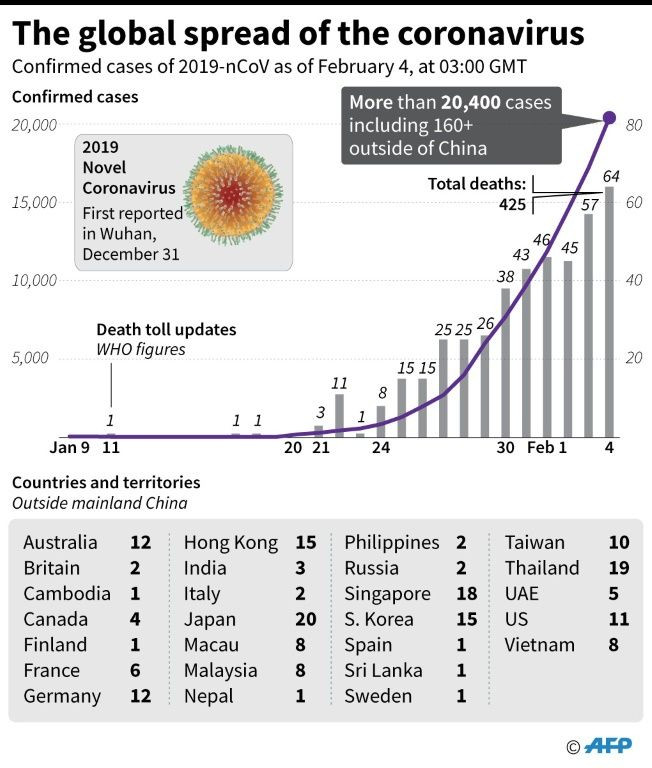Coronavirus Update: 25% Of Patients In China Are 'Very Serious', Need 'Intensive Care'

Dr. Anthony Fauci, director of the National Institute of Allergy and Infectious Diseases, told CNBC that about one-quarter of the coronavirus cases in China require intensive treatment. His exact words were, “About 25% of them have a very serious disease, requiring relatively intensive or really intensive care.”
Fauci, appearing on CNBC’s “Squawk on the Street”, a business news show, added, “It’s escalating. The number of cases that increase from one day to another is clearly going up in a very steep slope.” The parent organization of Dr. Fauci’s group is the National Institute of Health (NIH), an agency of the United States Department of Health and Human Services.
China’s National Health Commission on Monday confirmed the number of coronavirus cases in China had increased to 17,205 and that the death toll had risen to 361 plus another fatality in the Philippines. The World Health Organization (WHO) declared the virus a global health emergency last week and said that more than 150 coronavirus cases in about two dozen countries outside of China had been reported.
A major concern to Dr. Fauci and many health-care professionals and analysts is that the number of coronavirus cases could possibly be much higher than the official tallies.
Dr. Fauci added, “There are probably a lot more people who were infected in China who have not been really counted ... because they were either asymptomatic or their symptoms were so light that they didn’t come to the attention of health authorities. The number is probably much larger.”
In an NPR Podcast on Jan. 27, Dr. Fauci was asked if Chinese health officials were being forthcoming with their U.S. counterparts and with the WHO, about how the virus is spreading.
His response was to compare the coronavirus outbreak with the 2002-03 SARS epidemic saying that there was an “egregious holding back of information” and that “…quite frankly, we don't really know exactly what's going on there, which is the reason why I said yesterday, in an interview, I would really like to have some of our people, our CDC people deal directly with them…. because all that we're hearing right now are reports from them.”
He ended his response to the question saying China is certainly more transparent than it was back in 2002 and 2003 with the SARS outbreak and that he assumed the government was being totally transparent.
Another medical expert, Dr. Gregory Poland, director of the Mayo Clinic’s Vaccine Research Group, told CNBC earlier Monday the coronavirus and the regular flu virus have similar symptoms and that the U.S. nationals can protect themselves from the coronavirus by using the same hygiene best-practices they use for the regular flu.
He also stated on the “Squawk Box” that the worldwide coronavirus outbreak is “basically at a pandemic now.”
© Copyright IBTimes 2025. All rights reserved.





















